September 30, 2013

Philosophy of Dreams by Christoph Turcke, Susan H. Gillespie (tr.) (Yale University Press, 2013)
(amazon.co.uk)
Book description from the publisher:
Why has humankind developed so differently from other animals? How and why did language, culture, religion, and the arts come into being? In this wide-ranging and ambitious essay, Christoph Türcke offers a new answer to these timeworn questions by scrutinizing the phenomenon of the dream, using it as a psychic fossil connecting us with our Stone Age ancestors. Provocatively, he argues that both civilization and mental processes are the results of a compulsion to repeat early traumas, one to which hallucination, imagination, mind, spirit, and God all developed in response.
Until the beginning of the modern era, repetition was synonymous with de-escalation and calming down. Then, automatic machinery gave rise to a new type of repetition, whose effects are permanent alarm and distraction. The new global forces of distraction, Türcke argues, are producing a specific kind of stress that breaks down the barriers between dreams and waking consciousness. Türcke’s essay ends with a sobering indictment of this psychic deregulation and the social and economic deregulations that have accompanied it.
Google Books preview:
Comments (0)
- consciousness,culture
September 28, 2013
Videos from the conference held on 9/28/13 are available at FORA.tv. The first session is embedded below:
The Biology and Psychology of Ethical Behavior from Being Human on FORA.tv
Related reading:
Books by Robert Sapolsky
Presenter Joshua Greene has a forthcoming book: Moral Tribes: Emotion, Reason, and the Gap Between Us and Them (Oct 31, 2013)
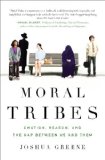
Susan Fiske’s recent book is Envy Up, Scorn Down: How Status Divides Us (2012)

Books by Paul Ekman, Emotional Awareness: Overcoming the Obstacles to Psychological Balance and Compassion by the Dalai Lama and Paul Ekman (2008, 2009)

Healing Spaces: The Science of Place and Well-Being by Esther Sternberg (2009, 2010)

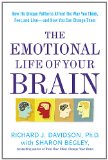
The Emotional Life of Your Brain by Richard J. Davidson and Sharon Begley (2012)
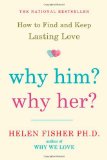
Why Him? Why Her?: Finding Real Love By Understanding Your Personality Type by Helen Fisher (2009, 2010)

Evolution and Human Sexual Behavior by Peter Gray and Justin Garcia (2013)
Laurie Santos at TED.com
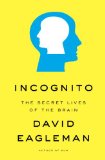
Incognito: The Secret Lives of the Brain by David Eagleman (2011, 2012)
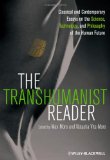
The Transhumanist Reader: Classical and Contemporary Essays on the Science, Technology, and Philosophy of the Human Future ed. by Max More and Natasha Vita-More (2013)
Jer Thorp’s blog
Comments (0)
- Uncategorized
September 20, 2013
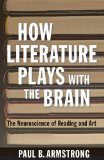
How Literature Plays with the Brain: The Neuroscience of Reading and Art by Paul B. Armstrong (Johns Hopkins University Press, 2013)
(kindle ed.), (amazon.co.uk)
Book description from the publisher:
“Literature matters,” says Paul B. Armstrong, “for what it reveals about human experience, and the very different perspective of neuroscience on how the brain works is part of that story.” In How Literature Plays with the Brain, Armstrong examines the parallels between certain features of literary experience and functions of the brain. His central argument is that literature plays with the brain through experiences of harmony and dissonance which set in motion oppositions that are fundamental to the neurobiology of mental functioning. These oppositions negotiate basic tensions in the operation of the brain between the drive for pattern, synthesis, and constancy and the need for flexibility, adaptability, and openness to change.
The challenge, Armstrong argues, is to account for the ability of readers to find incommensurable meanings in the same text, for example, or to take pleasure in art that is harmonious or dissonant, symmetrical or distorted, unified or discontinuous and disruptive.
How Literature Plays with the Brain is the first book to use the resources of neuroscience and phenomenology to analyze aesthetic experience. For the neuroscientific community, the study suggests that different areas of research—the neurobiology of vision and reading, the brain-body interactions underlying emotions—may be connected to a variety of aesthetic and literary phenomena. For critics and students of literature, the study engages fundamental questions within the humanities: What is aesthetic experience? What happens when we read a literary work? How does the interpretation of literature relate to other ways of knowing?
Google Books preview (scroll past blank page):
See also: Author’s webpage
Comments (2)
- cognitive science,culture,fiction,new books













